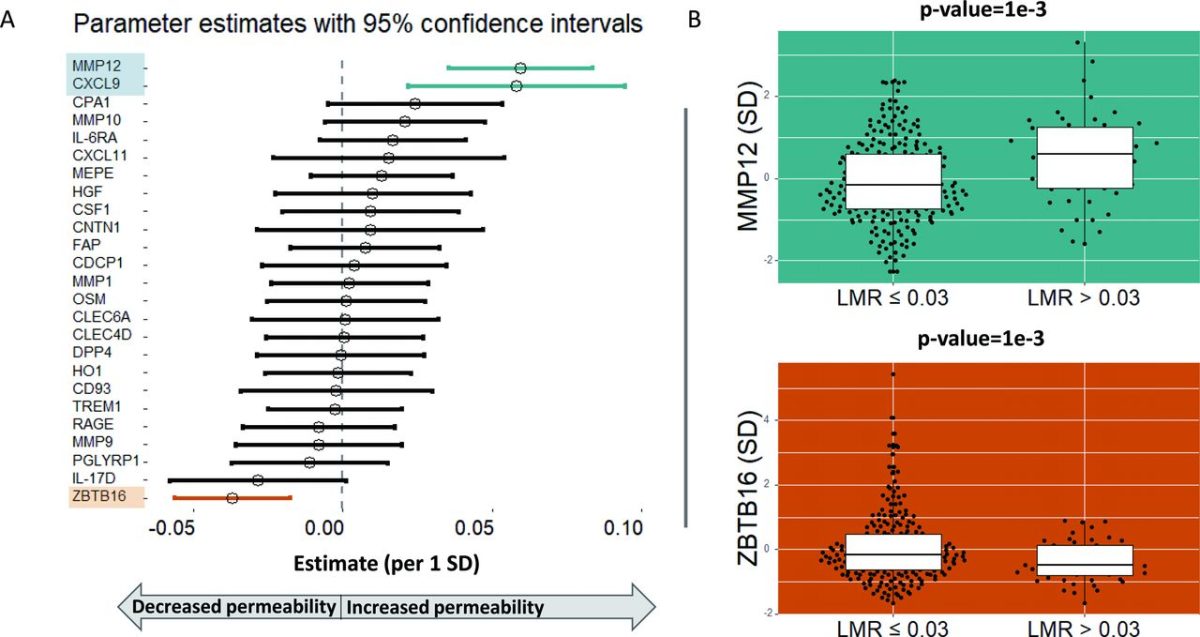Immune response and barrier dysfunction-related proteomic signatures in preclinical phase of Crohn’s disease highlight earliest events of pathogenesis.

This study set out to elucidate the biological pathways involved in the development of Crohn’s disease (CD). In this study, proteins in the blood of healthy first-degree relatives from the GEM Project cohort were measured to see if any serum proteins were associated with future risk of CD onset. The results showed that 25 out of 466 serum proteins were significantly associated with the future development of CD, and interestingly, many of these proteins were important for immune function and gut barrier function. Taken together, this study identified serum protein signatures which are associated with future CD development and provided insight into the earliest events of disease development.
Leibovitzh H, Lee SH, Raygoza Garay JA, Espin-Garcia O, Xue M, Neustaeter A, Goethel A, Huynh HQ, Griffiths AM, Turner D, Madsen KL, Moayyedi P, Steinhart AH, Silverberg MS, Deslandres C, Bitton A, Mack DR, Jacobson K, Cino M, Aumais G, Bernstein CN, Panaccione R, Weiss B, Halfvarson J, Xu W, Turpin W, Croitoru K; Crohn’s and Colitis Canada (CCC) Genetic, Environmental, Microbial (GEM) Project Research Consortium. Immune response and barrier dysfunction-related proteomic signatures in preclinical phase of Crohn's disease highlight earliest events of pathogenesis. Gut. 2023 Feb 14:gutjnl-2022-328421. doi.org/10.1136/gutjnl-2022-328421.